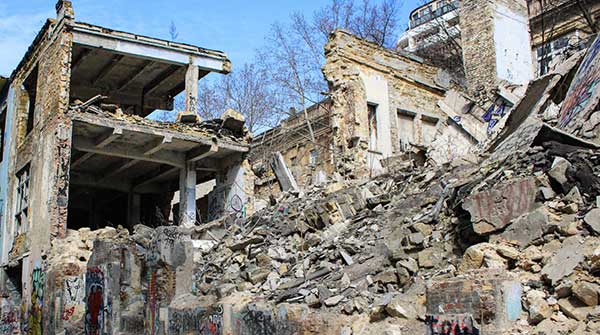The earthquake in Turkey and Syria was a natural disaster, but the death toll was manmade
 The world watches in horror as the death toll from an earthquake measuring 7.8 on the Richter scale in Turkey and northern Syria continues to rise. This is a wake-up call for humanity, where we stand back and say to ourselves, “My god! What have we done?”
The world watches in horror as the death toll from an earthquake measuring 7.8 on the Richter scale in Turkey and northern Syria continues to rise. This is a wake-up call for humanity, where we stand back and say to ourselves, “My god! What have we done?”
Two factors contributing to the high death toll are direct consequences of actions by the international community. The region of Turkey struck hardest by the earthquake has the world’s highest refugee population. Secondly, aid has been slow to reach victims in Syria because opposing sides in the ongoing Syrian War cannot put aside their differences and allow assistance to flow to those in need.
The war in Syria dates back to 2011 when the president of Syria, Bashar al-Assad, crushed opposition to his government in response to protests arising during the Arab Spring uprisings in the region. Our news sources told us that the conflict in Syria was complex, and our capable diplomats were supporting democratic efforts in the region.
As a descendant of Syrian refugees from a century earlier, I remember feeling uneasy and advising caution regarding military intervention in the country. I now deeply regret not having been more outspoken.
In truth, the situation in Syria is not complex at all. Syria has a very diverse population, and Assad is a political strongman. At the same time, he was holding the country together, and life was improving for Syrians. Before the war, literacy rates were over 90 percent, 97 percent of children were receiving at least a primary school education, and government spending on education was increasing. Syria had also demonstrated significant improvements in healthcare, with drops in infant mortality and life expectancy rising from 56 years in 1970 to 73.1 in 2009.
The Assad government seemed similar to that of earlier Ottoman rulers. Arab Studies scholar Ussama Makdisi, in his book Age of Coexistence, discusses how diversity was dealt with in a way that was “separate, unequal and protected.”
While they did not enjoy the same freedoms I enjoy in Canada, my Catholic relatives in Aleppo were at least safe under Assad, which would not be the case if more extremist elements had taken control of the country.
Though I never visited Syria, the people there seemed far better off than those living under Ferdinand Marcos in the Philippines or Mobutu Sese Seko in the Congo, two American-backed dictators I have lived under.
Since 2011, the Americans, Russians, their allies, and weapons manufacturers have become heavily involved in Syria, and the result has been devastating. War crimes have been committed on all sides, and millions have become refugees. Media coverage has been pathetic, with all but a few journalists adding to the confusion by providing incomplete coverage to avoid offending their sponsors.
Sanctions were put in place by the Americans and their allies to destabilize the Assad government. The primary impact of the sanctions has been to deprive ordinary people of food, fuel, education, medical supplies, and healthcare.
Sanctions are now also compounding the suffering of people dealing with a deadly earthquake. This is not only wrong; it is obscene. There have been several reports, for example, that Syrian expatriates have been unable to even send money to their families in need.
The war in Syria did not have to happen. World leaders acted in a way that is criminal, with those of us living in the world’s democracies allowing them to do so.
If we are to live with integrity, we all need to look into the mirror and recognize the price of our silence and complicity. The earthquake in Turkey and Syria was a natural disaster, but the death toll resulting from the earthquake and the Syrian War was manmade. This is a hard truth we cannot deny and a reality to which we must finally respond.
Gerry Chidiac specializes in languages, genocide studies and works with at-risk students. He is the recipient of an award from the Vancouver Holocaust Education Centre for excellence in teaching about the Holocaust.
For interview requests, click here.
The opinions expressed by our columnists and contributors are theirs alone and do not inherently or expressly reflect the views of our publication.
© Troy Media
Troy Media is an editorial content provider to media outlets and its own hosted community news outlets across Canada.


